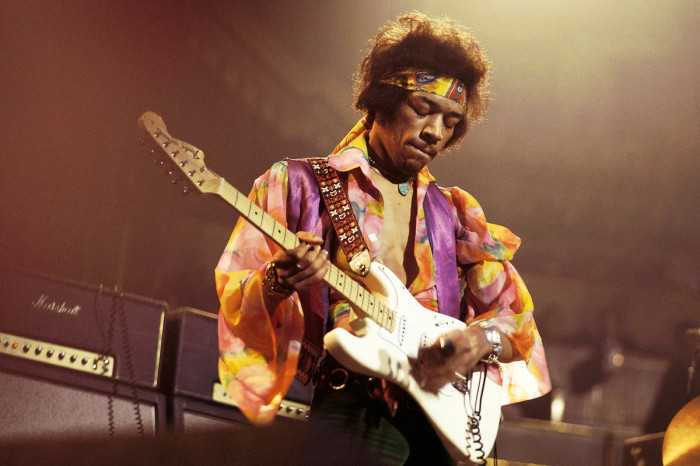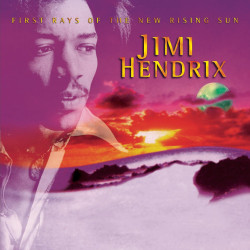 Image from David Redfern/Redferns
Image from David Redfern/Redferns
Jimi Hendrix
A favorite of
Darren Farnsworth
Select Songs
Rock
James Marshall "Jimi" Hendrix (born Johnny Allen Hendrix; November 27, 1942 – September 18, 1970) was an American rock guitarist, singer, and songwriter. His mainstream career lasted only four years,…
James Marshall "Jimi" Hendrix (born Johnny Allen Hendrix; November 27, 1942 – September 18, 1970) was an American rock guitarist, singer, and songwriter. His mainstream career lasted only four years, but he is widely regarded as one of the most influential guitarists in history and one of the most celebrated musicians of the 20th century. The Rock and Roll Hall of Fame describes him as "the greatest instrumentalist in the history of rock music".
Born in Seattle, Washington, Hendrix began playing guitar at age 15. In 1961, he enlisted in the US Army and trained as a paratrooper in the 101st Airborne Division, but he was discharged the following year. He moved to Clarksville, Tennessee soon after and began playing gigs on the Chitlin' Circuit, earning a place in the Isley Brothers' backing band and later with Little Richard, with whom he continued to work through mid-1965. He played with Curtis Knight and the Squires before moving to England in late 1966 after being discovered by Linda Keith, who interested bassist Chas Chandler of the Animals in becoming his first manager. Within months, Hendrix earned three UK top ten hits with the Jimi Hendrix Experience: "Hey Joe", "Purple Haze", and "The Wind Cries Mary". He achieved fame in the US after his performance at the Monterey Pop Festival in 1967, and his third and final studio album Electric Ladyland reached number one in the US in 1968; it was Hendrix's most commercially successful release and his only number-one album. He was the world's highest-paid performer, and he headlined the Woodstock festival in 1969 and the Isle of Wight Festival in 1970. He died from barbiturate-related asphyxia on September 18, 1970, at age 27.
Hendrix was inspired by American rock and roll and electric blues. He favored overdriven amplifiers with high volume and gain, and was instrumental in popularizing the previously undesirable sounds caused by guitar amplifier feedback. He was also one of the first guitarists to make extensive use of tone-altering effects units in mainstream rock, such as fuzz distortion, Octavia, wah-wah, and Uni-Vibe. He was the first musician to use stereophonic phasing effects in recordings. Holly George-Warren of Rolling Stone writes: "Hendrix pioneered the use of the instrument as an electronic sound source. Players before him had experimented with feedback and distortion, but Hendrix turned those effects and others into a controlled, fluid vocabulary every bit as personal as the blues with which he began."
In 1967, readers of Melody Maker voted Hendrix the Pop Musician of the Year, and Rolling Stone declared him the Performer of the Year in 1968. Disc and Music Echo magazine honored him with the World Top Musician of 1969, and Guitar Player named him the Rock Guitarist of the Year in 1970. The Jimi Hendrix Experience was inducted into the Rock and Roll Hall of Fame in 1992 and the UK Music Hall of Fame in 2005. Rolling Stone ranked the band's three studio albums among the 100 greatest albums of all time, and ranked Hendrix the greatest guitarist and the sixth greatest artist of all time.
Source Wikipedia













